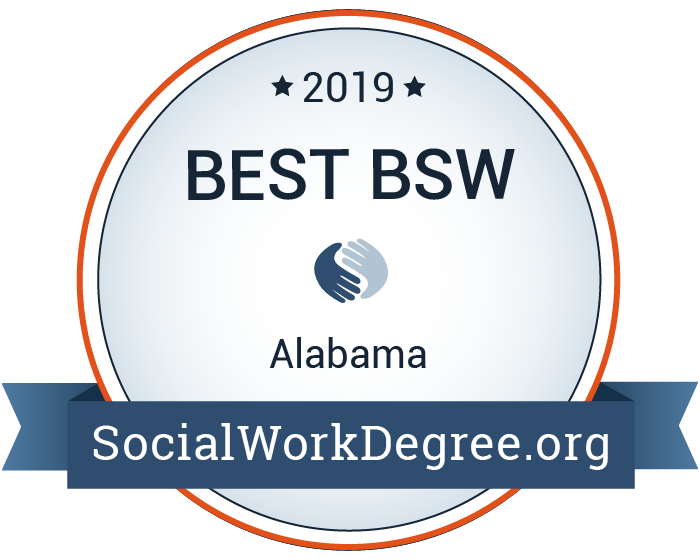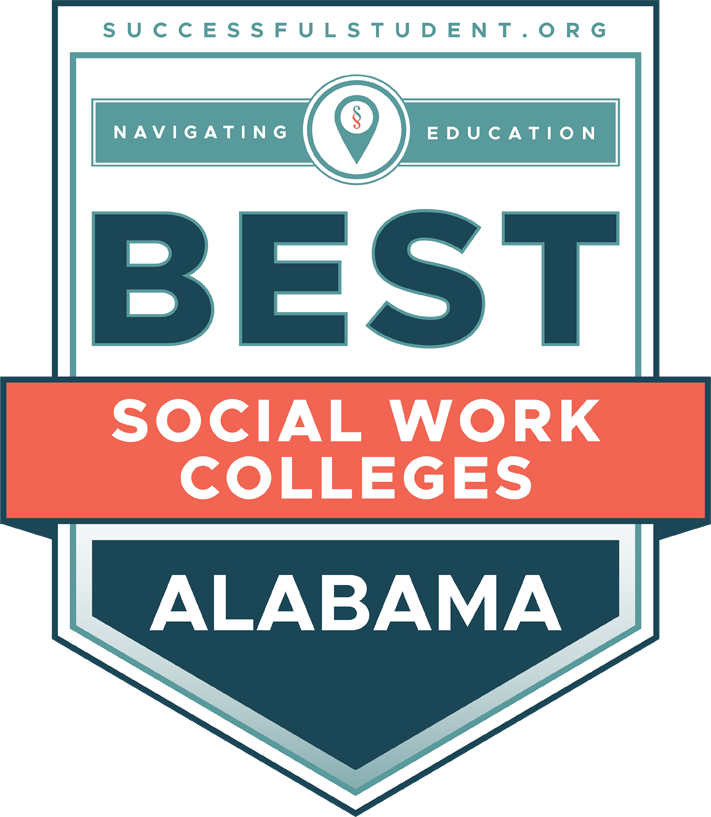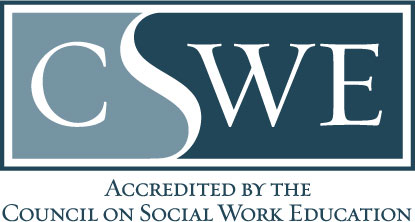Goal 1: Generalist Competence Across Systems
Prepare students for entry-level generalist social work practice that engages, assesses, intervenes, and evaluates across micro, mezzo, and macro levels using a person-in-environment and ecological systems framework.
Mission Link: This supports the mission’s aim to “prepare culturally responsive generalist practitioners… to serve individuals, families, groups, organizations, and communities.”
Goal 2: Ethical, Evidence-Informed Practice
Equip students with the ability to practice ethically and competently, using evidence-informed approaches grounded in scientific inquiry and social work values.
Mission Link: This goal reflects the mission’s emphasis on “ethical, evidence-informed practice” and competence aligned with professional values.
Goal 3: Cultural Responsiveness and Diversity
Develop practitioners who demonstrate cultural humility and an understanding of how systemic oppression, racism, and marginalization impact clients and communities—particularly those from historically underrepresented or underserved groups.
Mission Link: This goal draws from the commitment to “prepare culturally responsive generalist practitioners” and aligns with the HBCU context of the program.
Goal 4: Social, Racial, Economic, and Environmental Justice
Empower students to become change agents who advocate for social, racial, economic, and environmental justice, both locally and globally.
Mission Link: Directly derived from the mission language “promote social, racial, economic, and environmental justice,” this goal guides students toward advocacy and systems change.
Goal 5: Readiness for Graduate Social Work Education
Ensure students are well-prepared for graduate-level social work education, including advanced generalist practice in programs such as the Tuskegee University Online MSW Program.
Mission Link: Reflects the mission’s aim to prepare students for “lifelong professional service” and continued social work education.
Objectives: Align with program goals, TU SLOs for general education, and CSWE EPAS 2022/NASW code of ethics.
✅ Goal 1: Generalist Competence Across Systems
Objective 1.1
Demonstrate the ability to engage individuals, families, groups, organizations, and communities using culturally appropriate, person-in-environment approaches.
(Aligned with CSWE Competencies 6 & 2; TUGESLOs: Communication, Social Responsibility)
Objective 1.2
Apply ecological systems theory to assess biopsychosocial, environmental, and structural factors influencing client systems.
(Aligned with CSWE Competencies 7; NASW Ethical Standards: Importance of Human Relationships, Dignity and Worth of the Person)
Objective 1.3
Design and implement generalist interventions across micro, mezzo, and macro levels, demonstrating adaptability and cultural relevance.
(Aligned with CSWE Competency 8; TUGESLOs: Critical Thinking, Global Awareness)
Objective 1.4
Evaluate practice outcomes using ethical, evidence-based tools to improve individual and community well-being.
(Aligned with CSWE Competency 9; TUGESLOs: Scientific and Quantitative Reasoning)
✅ Goal 2: Ethical, Evidence-Informed Practice
Objective 2.1
Apply the NASW Code of Ethics to resolve ethical dilemmas in practice, ensuring professional behavior and decision-making.
(Aligned with CSWE Competency 1; NASW Ethical Standards: Integrity, Competence)
Objective 2.2
Demonstrate use of empirical research and data to inform practice decisions, treatment planning, and evaluation strategies.
(Aligned with CSWE Competency 4; TUGESLOs: Scientific and Quantitative Reasoning)
Objective 2.3
Maintain ethical documentation, boundaries, and communication across settings including virtual and interprofessional contexts.
(Aligned with CSWE Competency 1; TUGESLOs: Communication, Ethical Reasoning)
✅ Goal 3: Cultural Responsiveness and Diversity
Objective 3.1
Exhibit cultural humility by reflecting on one’s own biases and demonstrating respectful engagement with diverse identities and worldviews.
(Aligned with CSWE Competency 2; NASW: Cultural Competence and Social Diversity)
Objective 3.2
Analyze the impact of systemic racism, historical trauma, and institutional inequities on marginalized populations.
(Aligned with CSWE Competency 3; TUGESLOs: Global Awareness, Social Responsibility)
Objective 3.3
Integrate inclusive and anti-oppressive language and frameworks in all written, oral, and applied work.
(Aligned with CSWE Competency 2; TUGESLOs: Communication, Diversity and Inclusion)
✅ Goal 4: Social, Racial, Economic, and Environmental Justice
Objective 4.1
Advocate for human rights and social, racial, economic, and environmental justice using policy analysis and community engagement strategies.
(Aligned with CSWE Competencies 3 & 5; NASW: Social Justice; TUGESLOs: Civic Knowledge and Engagement)
Objective 4.2
Assess social welfare policies’ effects on vulnerable populations and propose reforms rooted in equity and empowerment.
(Aligned with CSWE Competency 5; TUGESLOs: Critical Thinking, Social Responsibility)
Objective 4.3
Collaborate with diverse stakeholders to advance sustainable solutions addressing social and environmental disparities.
(Aligned with CSWE Competencies 6, 8; TUGESLOs: Teamwork and Problem Solving)
✅ Goal 5: Readiness for Graduate Social Work Education
Objective 5.1
Synthesize generalist knowledge, values, and skills in a capstone field practicum integrating professional self-reflection and research.
(Aligned with CSWE Competencies 1–9; TUGESLOs: Lifelong Learning, Critical Thinking)
Objective 5.2
Demonstrate readiness for advanced social work education through successful completion of fieldwork, integrative seminars, and professional presentations.
(Aligned with CSWE Competency 1; NASW: Professional Development)
Objective 5.3
Show evidence of preparedness for graduate-level writing, analysis, and ethical decision-making aligned with the MSW trajectory.
(Aligned with CSWE Competencies 1, 4, 9; TUGESLOs: Communication, Ethical Reasoning)




